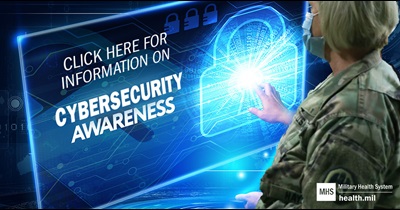Skip subpage navigation
Defense Health Agency Information Operations is consolidating and standardizing solutions and infrastructure to enhance and simplify health care information technology for users across the Military Health System. Our goal is to deliver seamless health IT solutions to support the delivery of health care to 9.6 million beneficiaries worldwide and give our workforce solutions to do their jobs more efficiently.
What is Health Care Technology?
Health care technology is any technology, including medical devices, IT systems, algorithms, artificial intelligence, and more designed to support health care organizations.
Benefits of Technology in Health Care
Improved Patient Care and Experience
We use technology to measure and capture data across the entire MHS to see how we’re performing and make improvements to clinical care and our patients’ experience. >>More
Real-Time Information Exchange
We’re deploying a new electronic health record, and when fully deployed, MHS GENESIS will provide a single, secure and integrated health record for service members, veterans and their families. >>More
Flexible Health Care Options
We're all busy, but with telehealth solutions, we're meeting you where you are to give you the care you need. >>More

You also may be interested in...
Photo
Jul 26, 2018
Mark Goodge, chief technology officer for the Defense Health Agency, speaks to attendees of the Defense Health Information Technology Symposium about the agency Desktop to Datacenter initiative.
Photo
Jul 24, 2018
On July 24, 2018, at the Defense Health Information Technology Symposium in Orlando, Fla., Service members and employees from across the Military Health System were recognized who have made significant contributions and demonstrated outstanding excellence and achievement in Health Information Technology (HIT) in the past year.
Photo
Jul 26, 2017
Army Col. Rich Wilson (left) moderates a panel discussion with current and former program managers from the Defense Health Agency's Solution Delivery Division. The panel, titled No Patient Left Behind: Leveraging Partnerships for Change, discussed the importance of supporting patient care during modernization as the MHS transitions legacy applications ...
You are leaving Health.mil
The appearance of hyperlinks does not constitute endorsement by the Department of Defense of non-U.S. Government sites or the information, products, or services contained therein. Although the Defense Health Agency may or may not use these sites as additional distribution channels for Department of Defense information, it does not exercise editorial control over all of the information that you may find at these locations. Such links are provided consistent with the stated purpose of this website.
You are leaving Health.mil
View the external links disclaimer.
Last Updated: July 09, 2024